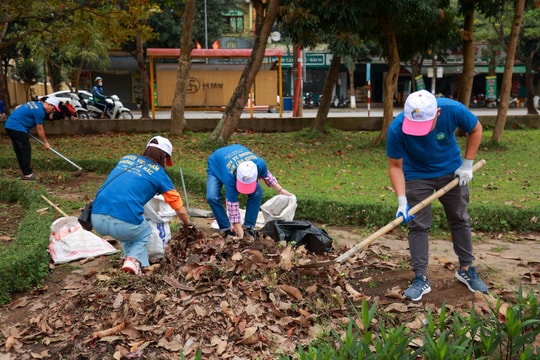Stories about people picking up trash on the beach
Every day, on the waterway from Cua Hoi port to Dao Ngu, there is a group of people quietly and diligently collecting and picking up trash on the sea.
Since the beginning of June 2024, every morning from 6am to 6:30am, there is a "special" boat departing from Cua Hoi fishing port. On this boat, there are 6 middle-aged and elderly women and 2 men in charge of steering the boat. They are not fishermen going out to sea to fish, but are environmental sanitation workers of an industrial sanitation company. This company is contracted to collect garbage at VinWonders Cua Hoi, Ngu island area.
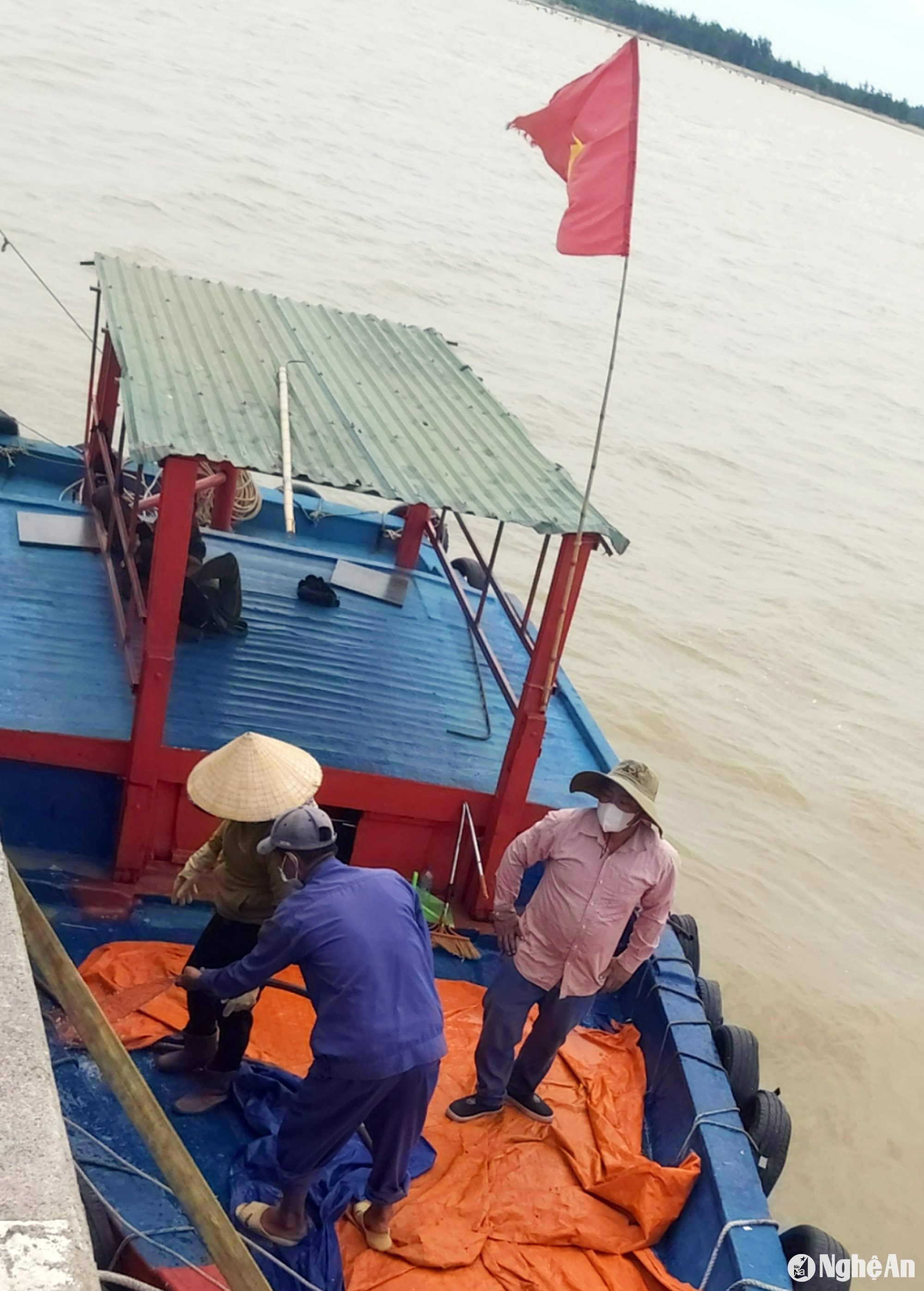
Ms. Nguyen Thi Long, 62 years old, in Nghi Phong commune, Nghi Loc district, is the head of the garbage collection team. Ms. Long shared about this rather arduous job: Every day, we go to the island to bring garbage to the mainland. On average, every day on the island, there are about 5-6 m3Garbage. Garbage has many different components, mostly plastic bottles, plastic bags, leftover food... After finishing the collection, at around 8-9 am, we return to the fishing port, unload the garbage, bring it to the sorting yard, then pack it in boxes for the car to transport for processing. The work usually ends at 12-12:30 pm. The hardship here is the heavy work, in the conditions of waves and pollution.
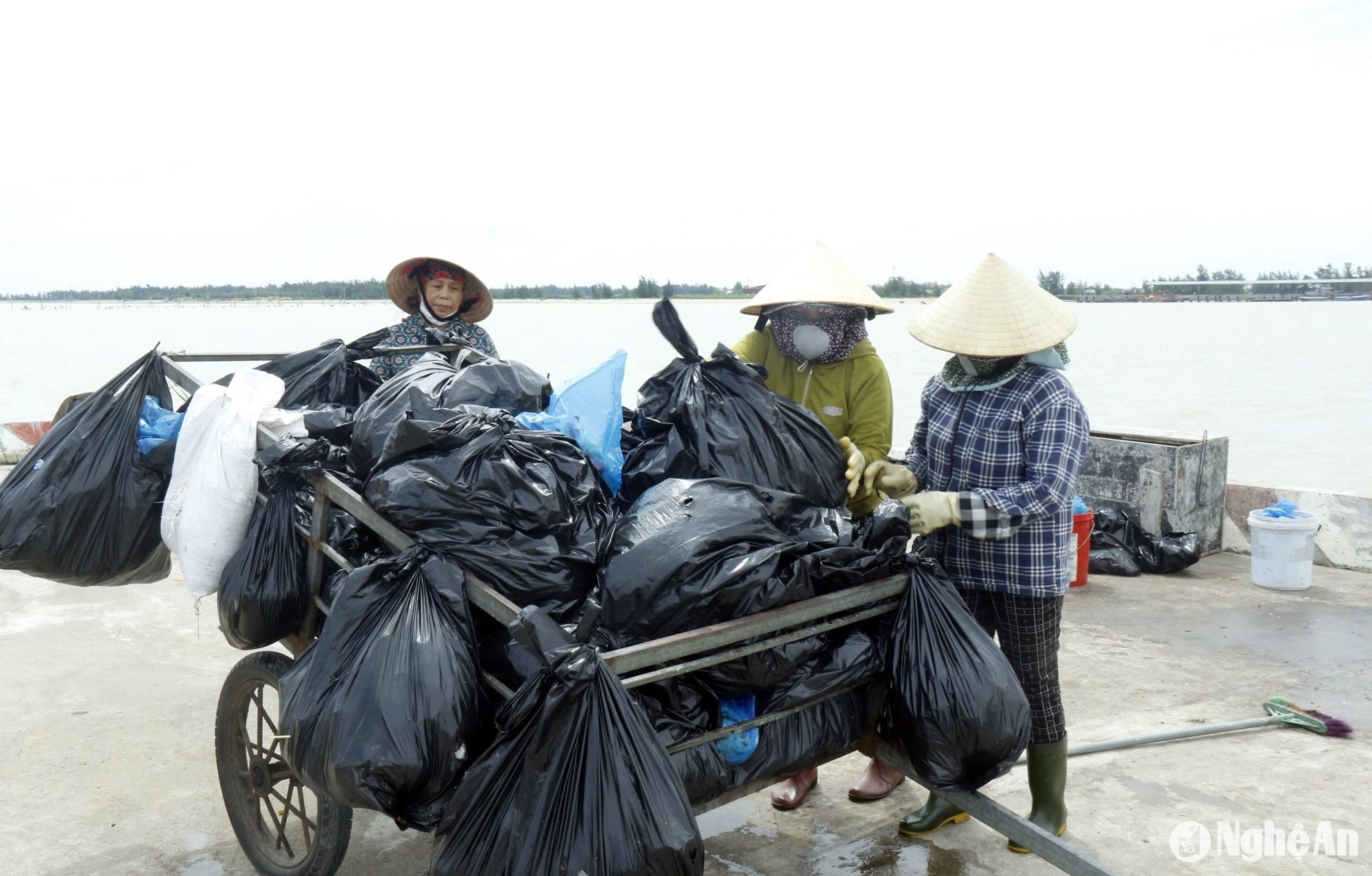
During the trips out to sea, the boat not only transports garbage from the island to the mainland. This group of workers also "takes the opportunity" to collect garbage such as bottles and plastic bags floating on the sea and river mouths. Ms. Mai Thi Huong, 50 years old, a member of the group shared: As environmental sanitation workers, we cannot stand to see the marine environment polluted. So, whenever we see garbage, we pick it up. This is like an instinct...
The act of collecting trash on the sea and the sharing of the people doing environmental sanitation work reminds us of the story of a type of seagrass called Neptune - a typical plant of the Mediterranean region. Neptune grass grows in fields on the seabed. When it sheds its leaves, the grass fibers will intertwine and form small spheres and balls. These grass fiber balls will "trap" all kinds of plastic waste. When there are big waves, these balls are pushed from the sea to the mainland, carrying the plastic waste inside.
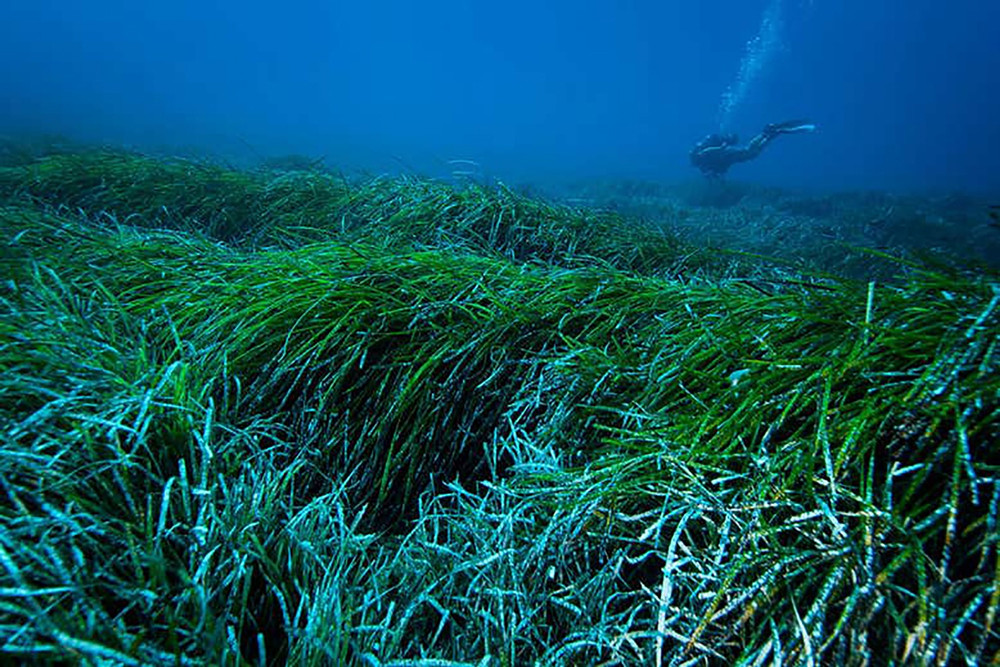
According to marine biologists, it is estimated that each year, these Neptune grass balls "trap" nearly 900 million pieces of plastic waste in the Mediterranean. The usefulness of Neptune seagrass in cleaning up plastic waste in the ocean has shown that nature is still trying every day to protect the living environment... Ocean plastic waste pollution has become an urgent global problem. People need to take more action. According to information from the Vietnam Administration of Seas and Islands, about 267 species of marine life have been entangled or eaten microplastic pieces in the sea. On average, each fish has 2.1 pieces of plastic.
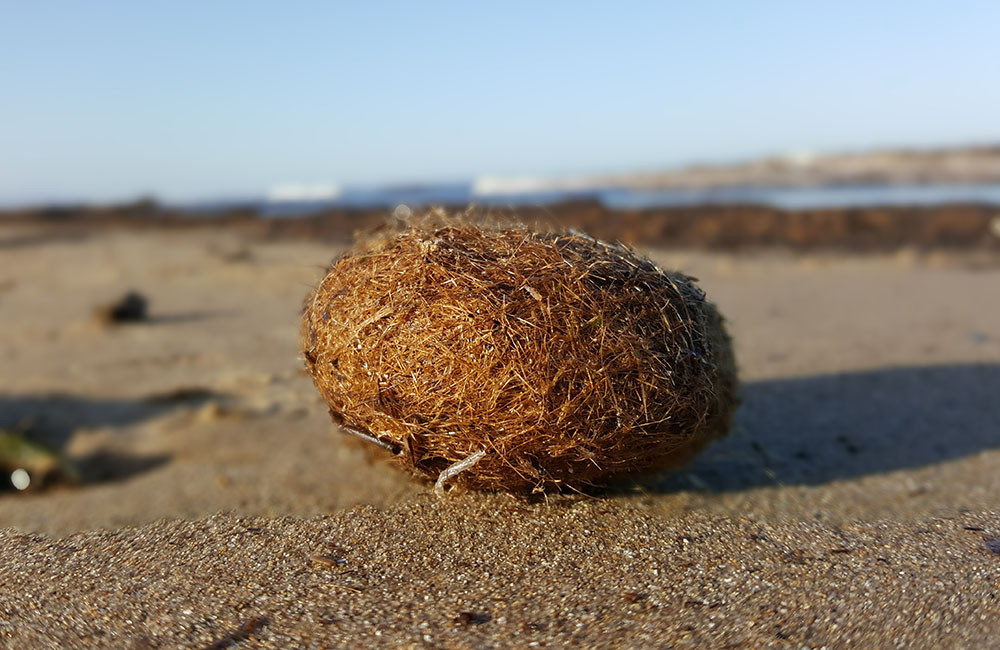
According to Ms. Nguyen Thi Long - people who are quietly collecting waste from the sea, Cua Hoi port and Cua Lo beach in Nghe An are also very clean, without much plastic waste. However, every time there is a storm or heavy rain, the sea is flooded with floating garbage from upstream, from the mainland to the river mouth and the sea. At this time, it is necessary to have people to collect this hazardous waste to protect the sea. We want our house to be clean. The sea is a big house...
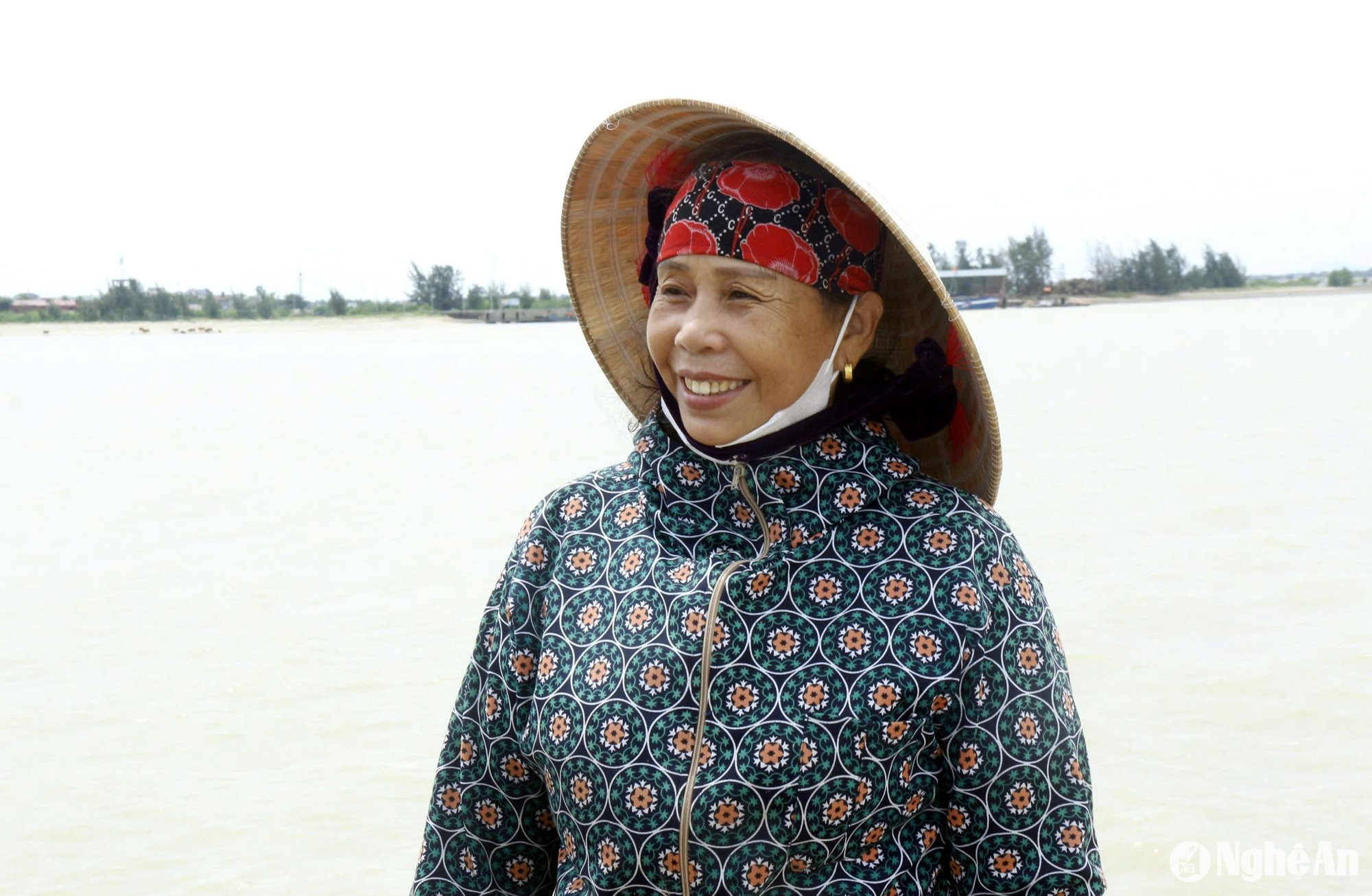
In this environmental sanitation team, Ms. Nguyen Thi Long is the person with the most "seniority". She herself used to follow the company to participate in the work of cleaning the marine environment in many coastal tourist areas across the country such as Sam Son - Thanh Hoa, Da Nang, Quy Nhon... Sharing about her career, Ms. Long said: In previous years, I still followed the company's contract, cleaning at major tourist beaches across the country. It must be said that in localities that develop marine tourism, local people are very conscious of preserving the environment. In Nghe An, the work of ensuring marine environmental sanitation needs to be carried out regularly and more widely.
Now, at an old age, Mrs. Long and the workers in the group no longer have to travel far to work but return to work close to home. They are very happy to still be able to work, contribute, live healthy and useful lives...

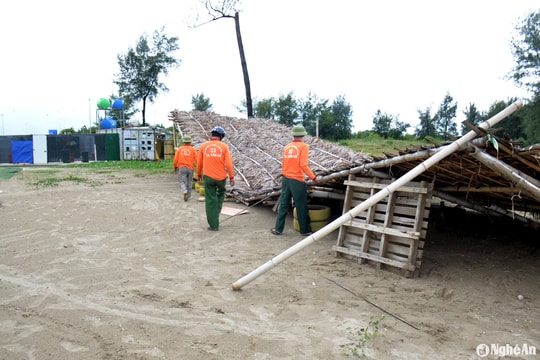

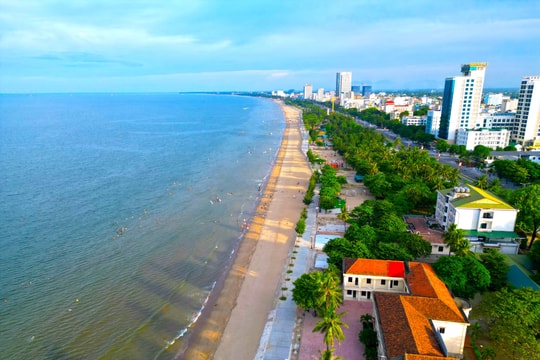
.jpg)


